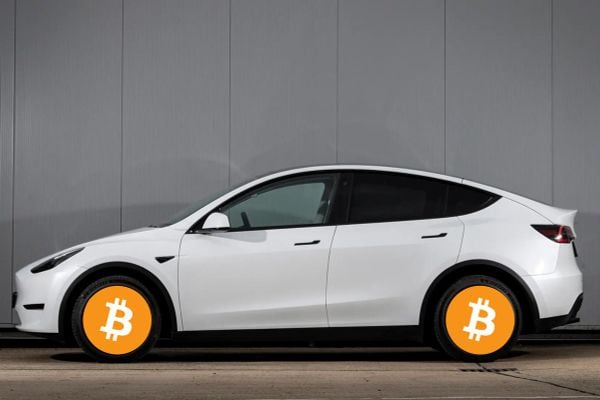No products in the cart.
Blogs
Tesla Unlikely to Accept Bitcoin Again: The Impact on the Automotive Industry
Since its inception, Bitcoin has revolutionized the financial industry and has gained significant popularity among investors and tech enthusiasts alike. However, recent developments have raised concerns about the acceptance of Bitcoin as a legitimate payment method in various sectors. One such sector is the automotive industry, with Tesla being at the forefront of this discussion. In this article, we will explore why Tesla is unlikely to accept Bitcoin again and how this decision by the electric vehicle giant could impact the industry as a whole. Additionally, we will discuss the role of Genuine Parts Deal, a prominent car parts supplier, in this context.

TESLA’S DECISION: A CLOSER LOOK:
In early 2021, Tesla made headlines when it announced that it would accept Bitcoin as payment for its electric vehicles. This move was seen as a major step towards mainstream adoption of cryptocurrencies. However, just a few months later, CEO Elon Musk decided to reverse this decision. The primary reason cited for this change of heart was concerns about the environmental impact of Bitcoin mining and transactions. Musk expressed his worries about the extensive use of fossil fuels, particularly coal, in the process.
THE ENVIRONMENTAL CONCERNS:
Bitcoin mining requires vast amounts of computational power, leading to substantial energy consumption. This energy is often generated from non-renewable sources, such as coal, resulting in significant carbon emissions. Musk’s decision to discontinue Bitcoin transactions for Tesla vehicles aligned with his commitment to reducing the company’s carbon footprint. By distancing itself from Bitcoin, Tesla aimed to emphasize its focus on sustainability and clean energy solutions.
BITCOIN’S VOLATILITY: A CAUSE FOR CONCERN:
Another crucial factor contributing to Tesla’s decision to stop accepting Bitcoin was the cryptocurrency’s notorious volatility. Bitcoin is known for its dramatic price fluctuations, which can make it a risky payment option. The automotive industry, characterized by high-value transactions, cannot afford to bear the brunt of such price swings. Unlike traditional fiat currencies that are relatively stable, Bitcoin’s wild price swings make it an unreliable medium of exchange, especially for the purchase of expensive assets like cars.
THE IMPACT ON THE AUTOMOTIVE INDUSTRY:
Tesla’s decision not to accept Bitcoin again has significant implications for the automotive industry at large. As one of the most prominent electric vehicle manufacturers, Tesla’s stance on cryptocurrencies sets a precedent for other manufacturers. While some independent car parts dealerships in the UK currently accept Bitcoin as a form of payment, major car parts supplier just like Genuine Parts Deal have refrained from doing so.
CONCLUSION:
Tesla’s decision not to accept Bitcoin again has sparked discussions about the role of cryptocurrencies in the automotive industry. While major car parts supplier like Genuine Parts Deal have refrained from embracing Bitcoin, independent dealerships like those connected through Autocoincars provide an avenue for Bitcoin transactions. However, challenges such as volatility and environmental concerns continue to hinder widespread adoption. As the industry evolves, car parts supplier and cryptocurrency enthusiasts will need to find common ground to unlock the full potential of cryptocurrencies as a payment option.
